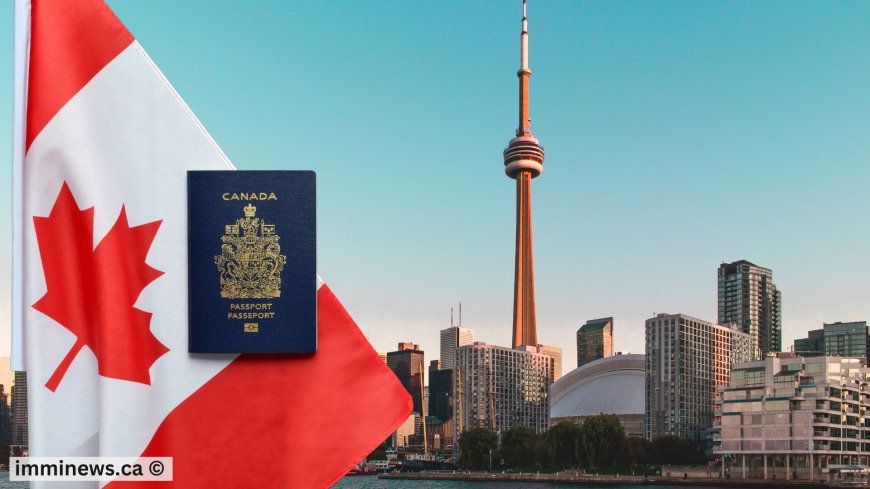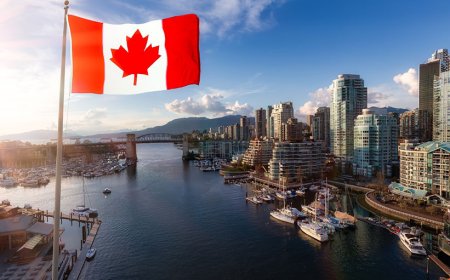Canada has long been a popular destination for international students, thanks to its renowned universities, multicultural environment, and opportunities to gain valuable work experience. Beyond education, studying in Canada can be a significant step toward obtaining permanent residency (PR).
Graduating from a Designated Learning Institution (DLI) and gaining eligible work experience can improve a student’s standing in Canada’s Express Entry system, which awards extra points to international graduates. However, a Canadian education alone doesn’t guarantee a pathway to PR. Several factors, including skills, qualifications, and the specific occupation pursued, play a crucial role in the process.
Recent immigration policy updates have made it more competitive for international students to transition from a study permit to permanent residency. If you're an international student aiming to make Canada your home, here are five ways to strengthen your PR prospects:
1. Stay Informed About Immigration Policy Changes
Canadian immigration policies are continually updated to reflect the country's economic needs, which can directly impact the pathways available for international students to achieve permanent residency. For example, earlier this year, the government announced that students enrolled in study programs with curriculum licensing agreements would no longer be eligible for Post-Graduation Work Permits (PGWP). These agreements typically involve private colleges licensed to deliver curricula from public institutions, often under less regulation.
To avoid setbacks, students should research study programs carefully to ensure eligibility for PGWP after graduation. Staying on top of such policy changes is crucial for long-term planning toward PR.
2. Focus on In-Demand Professions
Canada’s labor market continues to evolve, and Express Entry draws now focus on specific in-demand professions. In 2023, category-specific draws were introduced, targeting skilled workers in industries like healthcare, STEM (Science, Technology, Engineering, Math), trades, transport, and agriculture.
If you're still deciding on a career path, consider pursuing qualifications in these fields, as they align with Canada’s current labor market needs. For instance, choosing a STEM-related career such as engineering, architecture, or data science may increase your chances of receiving an invitation through Express Entry. However, it’s important to note that these categories can change, and no specific career guarantees PR.
3. Explore Provincial Nominee Programs (PNPs)
In addition to the federal immigration streams, every province and territory in Canada (except Quebec and Nunavut) operates its own Provincial Nominee Programs (PNPs). These programs aim to attract skilled workers who meet the specific labor needs of each region.
If you’re concerned that your Comprehensive Ranking System (CRS) score might not be high enough for Express Entry, a provincial nomination could significantly boost your score. A provincial nomination adds 600 points to your CRS score, almost guaranteeing an Invitation to Apply (ITA) for PR. You can either apply directly through a province’s PNP stream or through Express Entry via an enhanced nomination. There are over 80 different provincial economic stream programs, offering various opportunities for international students.
Keep in mind that PNP criteria may change, so it's essential to stay informed about the economic priorities of your preferred province.
4. Improve Language Proficiency
Canada is a bilingual country with English and French as its official languages. Proficiency in either, or both, can greatly enhance your chances of gaining PR.
Maximizing your CRS points in language proficiency is key. If you don't achieve your desired score in your initial language test (IELTS or CELPIP for English), retaking the test can help improve your results. Additionally, learning a second language can give you extra points, boosting your competitiveness in the Express Entry pool.
French language proficiency has gained even more significance with the introduction of French-language-specific Express Entry draws. Candidates with a minimum score of 7 in all language abilities (reading, writing, speaking, and listening) on the Niveaux de compétence linguistique canadien (NCLC) are eligible for these draws, and this trend is expected to continue in the coming years.
5. Validate Your Foreign Degrees
Canada’s Express Entry system rewards education, so it’s vital to ensure that any degrees obtained outside of Canada are properly validated. This process is done through approved organizations such as World Education Services (WES). Validating your foreign credentials can enhance your CRS score and improve your chances of receiving PR.
International students can also consider pursuing additional education within Canada, which can further strengthen their Express Entry profile.
By staying informed, focusing on in-demand careers, and improving your qualifications, you can increase your chances of achieving permanent residency in Canada. The path from international student to permanent resident may be challenging, but with the right strategies, it’s entirely possible.

 Like
0
Like
0
 Dislike
0
Dislike
0
 Love
0
Love
0
 Funny
0
Funny
0
 Angry
0
Angry
0
 Sad
0
Sad
0
 Wow
0
Wow
0








































































